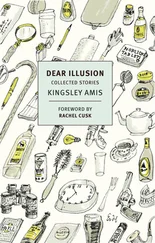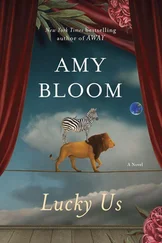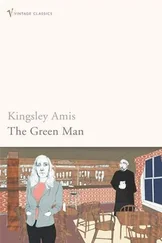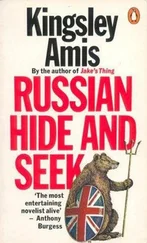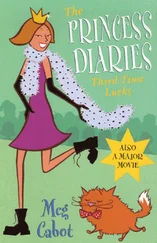'THEY made a silly mistake, though,' the Professor of History said, and his smile, as Dixon watched, gradually sank beneath the surface of his features at the memory. 'After the interval we did a little piece by Dowland,' he went on; 'for recorder and keyboard, you know. I played the recorder, of course, and young Johns…' He paused, and his trunk grew rigid as he walked; it was as if some entirely different man, some impostor who couldn't copy his voice, had momentarily taken his place; then he went on again: '… young Johns played the piano. Versatile lad, that; the oboe's his instrument, really. Well anyway, the reporter chap must have got the story wrong, or not been listening, or something.
Anyway, there it was in the /Post /as large as life: Dowland, yes, they'd got him right; Messrs Welch and Johns, yes; but what do you think they said then?'
Dixon shook his head. 'I don't know, Professor,' he said in sober veracity. No other professor in Great Britain, he thought, set such store by being called Professor.
'Flute and piano.'
'Oh?'
'Flute and piano; not recorder and piano.' Welch laughed briefly. ' Now a recorder, you know, isn't like a flute, though it's the flute's immediate ancestor, of course. To begin with, it's played, that's the recorder, what they call /a bee, /that's to say you blow into a shaped mouthpiece like that of an oboe or a clarinet, you see. A present-day flute's played what's known as /traeerso, /in other words you blow across a hole instead of…'
As Welch again seemed becalmed, even slowing further in his walk, Dixon relaxed at his side. He'd found his professor standing, surprisingly enough, in front of the Recent Additions shelf in the College Library, and they were now moving diagonally across a small lawn towards the front of the main building of the College. To look at, but not only to look at, they resembled some kind of variety act: Welch tall and weedy, with limp whitening hair, Dixon on the short side, fair and round-faced, with an unusual breadth of shoulder that had never been accompanied by any special physical strength or skill. Despite this over-evident contrast between them, Dixon realized that their progress, deliberate and to all appearances thoughtful, must seem rather donnish to passing students. He and Welch might well be talking about history, and in the way history might be talked about in Oxford and Cambridge quadrangles. At moments like this Dixon came near to wishing that they really were. He held on to this thought until animation abruptly gathered again and burst in the older man, so that he began speaking almost in a shout, with a tremolo imparted by unshared laughter: ' There was the most marvellous mix-up in the piece they did just before the interval. The young fellow playing the viola had the misfortune to turn over two pages at once, and the resulting confusion… my word…'
Quickly deciding on his own word, Dixon said it to himself and then tried to flail his features into some sort of response to humour.
Mentally, however, he was making a different face and promising himself he'd make it actually when next alone. He'd draw his lower lip in under his top teeth and by degrees retract his chin as far as possible, all this while dilating his eyes and nostrils. By these means he would, he was confident, cause a deep dangerous flush to suffuse his face.
Welch was talking yet again about his concert. How had he become Professor of History, even at a place like this? By published work? No.
By extra good teaching? No in italics. Then how? As usual, Dixon shelved this question, telling himself that what mattered was that this man had decisive power over his future, at any rate until the next four or five weeks were up. Until then he must try to make Welch like him, and one way of doing that was, he supposed, to be present and conscious while Welch talked about concerts. But did Welch notice who else was there while he talked, and if he noticed did he remember, and if he remembered would it affect such thoughts as he had already? Then, abruptly, with no warning, the second of Dixon's two predicaments flapped up into consciousness.
Shuddering in his efforts to repress a yawn of nervousness, he asked In his flat northern voice: 'How's Margaret these days?'
The other's day-like features changed indefinably as his attention, like a squadron of slow old battleships, began wheeling to face this new phenomenon, and in a moment or two he was able to say: 'Margaret' ^1 Yes; I've not seen her for a week or two.' Or three, Dixon added uneasily to himself.
'Oh. She's recovering very quickly, I think, all things considered. She took a very nasty knock, of course, over that Catchpole fellow, and all the unfortunate business afterwards. It looks to me… It's her mind that's suffering now, you see, not her body; physically she's absolutely fit again, I should say. In fact, the sooner she can get back to some sort of work the better, though it's really too late, of course, for her to start lecturing again this term. I know she'd like to get down to things again, and I must say I agree. It would help to take her mind off… off…'
Dixon knew all this, and very much better than Welch could hope to, but he felt constrained to say: 'Yes, I see. I think living with you, Professor, and Mrs Welch, must have helped her a lot to get out of the wood.'
' Yes, I think there must be something about the atmosphere of the pkce, you know, that has some sort of healing effect. We had a friend of Peter Warlock's down once, one Christmas it was, years ago it must be now. He said very much the same thing. I can remember myself last summer, coming back from that examiners' conference in Durham. It was a real scorcher of a day, and the train was… well, it…'
After no more than a minor swerve the misfiring vehicle of his conversation had been hauled back on to its usual course. Dixon gave up, stiffening his legs as they reached, at last, the steps of the main building. He pretended to himself that he'd pick up his professor round the waist, squeeze the furry grey-blue waistcoat against him to expel the breath, run heavily with him up the steps, along the corridor to the Staff Cloakroom, and plunge the too-small feet in their capless shoes into a lavatory basin, pulling the plug once, twice, and again, stuffing the mouth with toilet-paper.
Thinking of this, he only smiled dreamily when, after a pensive halt in the stone-paved vestibule, Welch said he had to go up and collect his 'bag* from bis room, which was on the second floor. While he waited, Dixon considered how, without provoking Welch to a long-lived, wondering frown, he could remind him of his invitation to come and eat tea at the Welches' house outside the city. They'd arranged to leave at four o'clock in Welch's car, and it was now ten past. Dixon felt apprehension lunging at his stomach as he thought of seeing Margaret, whom he was to take out that evening for the first time since she'd cracked up. He forced his attention away on to Welch's habits as a car-driver, and began trying to nourish outrage as a screen for the apprehension, tapping his long brown shoe loudly on the floor and whistling. It worked for five seconds or less.
How would she behave when they were alone together? Would she be gay, pretending she'd forgotten, or had never noticed, the length of time since he last saw her, gaining altitude before she dipped to the attack?
Or would she be silent and listless, apparently quite inattentive, forcing him to drag painfully from small-talk through solicitude to craven promises and excuses? However it began, it would go on in the same way: with one of those questions which could be neither answered nor dodged, with some horrifying confession, some statement about herself which, whether'said for effect' or not, got its effect just the same. He'd been drawn into the Margaret business by a combination of virtues he hadn't known he possessed: politeness, friendly interest, ordinary concern, a good-natured willingness to be imposed upon, a desire for unequivocal friendship. It had seemed only natural for a female lecturer to ask a junior, though older, male colleague up to her place for coffee, and no more than civil to accept. Then suddenly he'd become the man who was 'going round' with Margaret, and somehow competing with this Catchpole, a background figure of fluctuating importance. He'd thought a couple of months earlier that Catchpole was coming along nicely, taking the strain off him, reducing him to the sustainable role of consulting tactician; he'd even rather enjoyed the assumption that he knew something of how these campaigns were conducted. And then Catchpole had thrown her over, right over on to his lap. In that posture his destiny as the only current recipient of these unmanning questions and confessions could hardly be eluded.
Читать дальше

